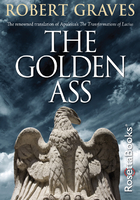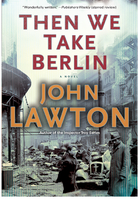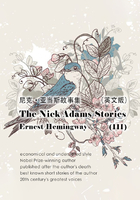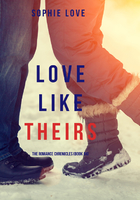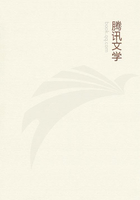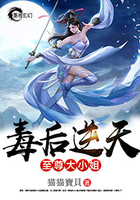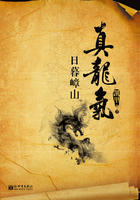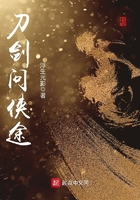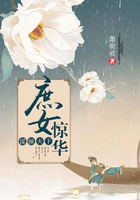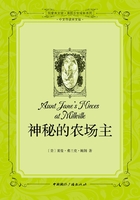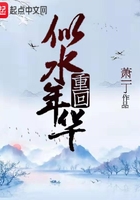The Feast of the Sacrifice
AS I WAS drifting off to sleep I thought about my distant relation Uncle Süreyya, and about his son, whom I'd seen at Ye?im's party and whose name I kept forgetting. Uncle Süreyya had been at the house for one of Füsun's holiday visits—the time we'd gone out for a ride in the car. As I lay in bed, stalking sleep, a few images from that cold, gray morning came back to me. As they paraded before my eyes, they seemed both very familiar and very strange, as memories do when they find their way into dreams: I remembered the tricycle, and I remembered going outside with Füsun, watching silently as a lamb was slaughtered, and then taking a ride in the car.
"We returned that tricycle from our house," said Füsun, who remembered everything much better than I did when we met the next day at the Merhamet Apartments. "After you and your brother outgrew it, your mother gave it to me. But by then I'd grown too old for it as well, so I didn't ride it anymore, and when we went to visit you that year, my mother brought it back."
"And then my mother must have brought it here," I said. "Now I can remember Uncle Süreyya also being there that day."
"Because he was the one who asked for the liqueur," said Füsun.
Füsun's recollection of that impromptu car excursion was likewise better than my own. I would like to pause here to relate the story that came back to me once she'd told it to me. Füsun was twelve and I was twenty-four years old. It was February 27, 1969, the first day of the Feast of the Sacrifice. On that morning, as on all holidays, our home in Ni?anta?? was packed with relatives close and distant, all delighted to have been invited for lunch, and dressed up in suits and ties and their finest dresses. The doorbell kept ringing and newcomers arrived, for example, my younger aunt with her bald husband and her nosy but beautifully dressed children, and everyone would stand to shake hands and kiss them on both cheeks. Fatma Han?m and I were passing out sweets when my father took my brother and me to one side.
"Uncle Süreyya's complaining again that we have no liqueurs. Listen, boys, could one of you go down to Alaaddin's shop and buy some peppermint and strawberry liqueur?"
My mother had previously banned the customary serving of peppermint and strawberry liqueur in crystal glasses on a silver tray, because sometimes my father drank too much. She'd done this for his health. But two years earlier, on just such a holiday morning, when Uncle Süreyya had lodged his familiar complaint about there being no liqueur, my mother, hoping to cut the discussion short, had asked, "Why would anyone serve alcohol on a religious holiday?" a question that had paved the way for an endless back-and-forth about religion, civilization, Europe, and the Republic between my mother and my fervently secularist pro-Atatürk uncle.
"Which one of you is going?" my father asked, peeling off a crisp ten-lira note from the wad of cash he'd taken out of the bank to pass out to the janitors and the watchmen and all the children who kissed his hand.
"Let Kemal go!" said my brother.
"No, let Osman go," I said.
"Why don't you go, my boy," my father said to me. "And don't tell your mother what you're up to…."
On my way out of the house I saw Füsun.
"Come out to the store with me, why don't you."
She was a skinny twelve-year-old girl with matchstick legs, the daughter of a distant relation, that was all. Apart from her immaculate clothes and the sparkling white butterfly-shaped bows of ribbon holding her shiny black braids, there was nothing particularly striking about her. All those years later, Füsun reminded me of the uninspired questions I'd asked that young girl in the lift: "What grade are you in?" (The first year of middle school.) "What school do you go to?" (Ni?anta?? Girls' Lycée.) "What do you want to be when you grow up?" (Silence!)
We had just left the building and taken a few steps into the cold when I saw that a crowd had gathered around the little linden tree next to a muddy empty lot and they were about to sacrifice a lamb. If my level of understanding had been what it is today, I would have asked myself whether a girl that age might find it upsetting to watch a lamb's throat being slit, and I wouldn't have brought Füsun any closer.
But I was curious, and insensitive, and so we walked on. It was our cook, Bekri Efendi, and our janitor, Saim Efendi, who had rolled up their sleeves and were holding down a lamb whose legs were bound together and whose coat of wool was red with henna. Next to the lamb was a man in an apron, wielding a large butcher's knife, but the lamb was thrashing so violently that he couldn't do the job. After a struggle, the cook and the janitor succeeded in stilling the lamb, leaving behind them a trail of frozen breath. Taking the lamb by its mouth and its sweet nose, the butcher pushed its head roughly to one side and held the knife against the throat. There followed a short silence. "Allah Akbar, Allah Akbar," said the butcher. Swiftly he slid the knife back and forth across the lamb's throat. When the butcher pulled the knife away dark red blood gushed out. The lamb was shuddering and you could see its life ebbing away. Everything was still. Suddenly a gust of wind shook the bare branches of the linden tree. The butcher dragged the lamb by its head across the ground to drain the blood into a hole that had been dug in advance.
In the crowd I saw grimacing children, and our chauffeur, ?etin Efendi, along with an old man who was praying. Füsun had silently taken hold of the sleeve of my jacket. Every now and again, the lamb shuddered, but these were its last throes. The butcher who was now wiping the knife on his apron was Kaz?m, whose shop was next to the police station—I'd not recognized him at first. Coming eye to eye with Bekri the cook, I realized that it was our lamb; in those days, we bought sacrificial lambs, and this was the one that had been tied up on a rope in the back garden for a week.
"Come on, let's go," I said to Füsun.
Without speaking, we walked up the street. Was I troubled by my indifference to a little girl's witnessing such a thing? I felt guilty, but I wasn't quite sure why.
Neither my mother nor my father was religious. I never saw either of them pray or keep a fast. Like so many married couples who had grown up during the early years of the Republic, they were not disrespectful of religion; they were just indifferent to it, and like so many of their friends and acquaintances they explained their lack of interest by their love for Atatürk and their faith in the secular republic. Even so, our family, like most other secularist bourgeois families living in Ni?anta??, would sacrifice a lamb for the Feast of the Sacrifice and distribute the meat and the skin to the poor according to custom. But my father would have nothing to do with the sacrifice itself, and neither would anyone else in the family: We left it to the cook and the janitor to distribute the alms. Like my relatives, I had always kept my distance from the annual ritual sacrifice in the empty lot next door.
As Füsun and I, still silent, walked up to Alaaddin's shop a cool wind hit us passing Te?vikiye Mosque and I felt almost as if it was my disquiet that made me shiver.
"Did that frighten you back there?" I asked. "We shouldn't have looked…."
"The poor lamb," she said.
"You know why they sacrifice the lamb, don't you?"
"One day, when we go to heaven, that lamb will take us over the S?rat bridge, which is thin as a hair and sharp as a sword…."
This was the version for children and people with no education.
"There's more to the story," I said, with a teacherly air. "Do you know how it begins?"
"No."
"The prophet Abraham was childless. He prayed to God, saying, 'O Lord, if you give me a child, I'll do anything you ask.' In the end his prayers were answered, and one day his son Ismail was born. The prophet Abraham was filled with joy. He adored his son; kissing and caressing him all day long, the prophet was exultant and every day he thanked God. One day God came to him in his dream and God said, 'Now slit your son's throat and sacrifice him.'"
"Why did he say that?"
"Listen now…. The prophet Abraham did as God instructed. He took out his knife, and just as he was about to slit his son's throat … at that very moment, a lamb appeared."
"Why?"
"God showed mercy to Abraham: He sent him the lamb so that he could sacrifice it in his son's place. God saw that Abraham had been obedient."
"If God hadn't sent the lamb, would the prophet Abraham really have slit his son's throat?" asked Füsun.
"He really would have," I said uneasily. "It was because He was sure that Abraham would slit his son's throat that God loved him so much and sent the lamb to spare him terrible grief."
I could see that I had not told the story in such a way as to make it clear to a twelve-year-old girl why a doting father would try to kill his son. My unease was now turning into annoyance at my failure to explain the sacrifice.
"Oh no, Alaaddin's shop is closed!" I said. "Let's go check the shop on the square."
We walked as far as Ni?anta?? Square. Reaching the crossroads, we saw that Nurettin's Place, which sold newspapers and cigarettes, was also closed. We turned back, and as we walked silently through the streets, I thought up an interpretation of the story of the prophet Abraham that Füsun might like.
"At the beginning, of course, the prophet Abraham has no idea that a lamb will take the place of his son," I said. "But he believes in God so much, loves Him so much that in the end he trusts no harm can come from Him…. If we love someone very much, we know that even if we give him the most valuable thing we have, we know not to expect harm from him. This is what a sacrifice is. Who do you love most in the world?"
"My mother, my father …"
We met ?etin the chauffeur on the sidewalk.
"?etin Efend?, my father wants some liqueur," I said. "All the shops in Ni?anta?? are closed, so could you take us to Taksim? And after that maybe we could go for a ride."
"I'm coming too, aren't I?" Füsun asked.
Füsun and I sat in the back of my father's '56 Chevrolet, which was a deep cherry red. ?etin Efendi drove us up and down the hilly, bumpy cobblestone streets as Füsun looked out the window. Passing Ma?ka, we continued down the hill to Dolmabah?e. Apart from a few people in their holiday best, the streets were empty. But as we passed Dolmabah?e Stadium, we saw another group performing a sacrifice.
"Oh, please, ?etin Efendi, could you tell the child why we make sacrifices? I wasn't able to explain it to her properly."
"Oh Kemal Bey, I'm sure you explained it beautifully," said the chauffeur. But he still seemed pleased to be acknowledged as more expert in matters of religion. "We make the sacrifice to show we're as loyal to God as the prophet Abraham was…. By this sacrifice we say that we are willing to lose even the thing that is most precious to us. We love God so much, little lady, that for Him we give up even the thing we love most. And we do that without expecting anything in return."
"Isn't there any heaven at the end of it?" I asked slyly.
"As God has so written … That will become clear on Judgment Day. We don't make the sacrifice to get into heaven. We make the sacrifice because we love God, and without expecting anything in return."
"You know a lot about religion, ?etin Efendi."
"Kemal Bey, you're embarrassing me. You're so educated, you know so much more. Anyway, you don't need religion or a mosque to know such things. If there is something we value greatly, something we have lavished with care, and we give it to someone truly out of love, it is without expecting anything in return."
"But wouldn't the person for whom we have performed this selfless act then feel upset?" I said. "They'd worry that we want something from them."
"God is great," said ?etin Efendi. "He sees everything and understands everything…. And He understands that we expect nothing in return for our love. No one can fool God."
"There's a shop open over there," I said. "?etin Efendi, could you stop here? I know they sell liqueurs."
In a minute Füsun and I had bought two bottles of the government monopoly's famous liqueurs, one peppermint and one strawberry, and climbed back into the car.
"?etin Efendi, we still have time, can you take us on a little drive?"
So many years later Füsun was able to remind me of most of the things we talked about during our long drive around the city. In my own memory only one image remained of that cold, gray holiday morning: Istanbul resembled a slaughterhouse. It was not just in the poor areas, or the empty lots in dark and narrow backstreets, or among the ruins and burned-out lots—even on the big avenues and in the richest neighborhoods, people had been slaughtering lambs, tens of thousands of them since the early hours of the morning. In some places the sidewalk and the cobblestones were covered in blood. As our car rolled down hills and across bridges and wound its way through the backstreets, we saw lambs that had just been slaughtered, lambs being chopped into pieces, lambs being skinned. We took the Galata Bridge across the Golden Horn. Despite the holiday and the flags and the crowds in their finery, the city looked tired and sad. Beyond the Aqueduct of Valens we turned toward Fatih. There we saw hennaed lambs for sale in an empty lot.
"Are these going to be slaughtered, too?" asked Füsun.
"Maybe not all of them, little lady," said ?etin Efendi. "It's almost noon, and these still haven't been sold…. Maybe, if they're not bought by the end of the holiday, these poor animals will be saved. But eventually, the drovers will sell them to butchers, little lady."
"We'll get there before the butchers and buy them, and save them," said Füsun. She wore an elegant red coat and as she smiled, she gave me a courageous wink. "We can rescue the sheep from this man who wants to slaughter his children, can't we?"
"We certainly can," I said.
"You're very clever, little lady," said ?etin Efendi. "Actually the prophet Abraham didn't want to kill his son at all. But the command was from God. If we don't submit to God's every command, then the world will turn upside down, the Judgment Day will be upon us…. The foundation of the world is love. The foundation of love is the love we feel for God."
"But how could a child whose father wants to kill him understand this?" I asked.
For a moment I met ?etin Efendi's eyes in the rearview mirror.
"Kemal Bey, I know you are just saying these things to tease me and have a good laugh, just like your father," he said. "Your father loves us very much and we respect him greatly, so we never get upset at his jokes. Your jokes don't upset me either. I'll answer your question with an example. Have you seen the film called The Prophet Abraham?"
"No."
"No, of course not—you'd never go to a film like that. But you should see this film and take this little lady with you. You won't be bored…. Ekrem Gü?lü plays Abraham. We took the whole family—my wife, my mother-in-law, and all our children—and we all cried to our hearts' content. When Abraham took out his knife and looked at his son, we all cried then, too…. And when Ismail said, 'Dear Father, do whatever God commands!' just like he does in the Glorious Kuran … we cried again. Then, when the sacrificial lamb appeared in the place of the son who was to have been slaughtered, we wept with joy, together with everyone else in the cinema. If we give what we treasure most to a Being we love with all our hearts, if we can do that without expecting anything in return, then the world becomes a beautiful place, and that, little lady, is why we were crying."
I remember going from Fatih to Edirnekap?, and from there we turned right to follow the city walls all the way to the Golden Horn. As we passed the poor neighborhoods, as we advanced along the crumbling city walls, the three of us fell silent, and we remained so for a very long time. As we gazed upon the orchards between the old castle walls, and the empty lots strewn with rubbish, discarded barrels, and debris, and the run-down factories and workshops, we saw the occasional slaughtered lamb, and skins that had been tossed to one side, with their innards and horns, but in the poor neighborhoods, with their unpainted wooden houses, there was less sacrifice, and more festivity. I remember how delighted Füsun and I were to look out over the lots where carousels and swings had been set up for the celebrations, and at the children buying gum with their holiday money, and the Turkish flags set like little horns on the tops of buses, and all the scenes that I would later find in photographs and postcards, and collect so ardently.
As we drove up ?i?hane Hill a crowd was milling in the middle of the road and the traffic had come to a standstill. At first I thought it was another holiday gathering, but when the crowd parted before us we found ourselves right beside two vehicles that had crashed only moments ago, and the dying victims. The truck's brakes had failed, and the driver had swerved into the oncoming lane, then mercilessly plowed into a private car.
"God is great!" said ?etin Efendi. "Please, little lady, make sure you do not look."
We caught a glimpse of someone still trapped inside the car, whose front was completely crushed, her head bobbing as she fought for her life. I shall never forget the crunch of shattered glass under our tires as we drove on or the quiet that followed. We hurried on up the hill, and as we sped through the deserted streets from Taksim to Ni?anta??, it was as if in flight from death itself.
"Where have you been all this time?" my father asked. "We were getting worried. Did you get the liqueur?"
"It's in the kitchen!" I said. The sitting room smelled of perfume, cologne, and carpet. As I joined the crowd of relations, I forgot all about little Füsun.


